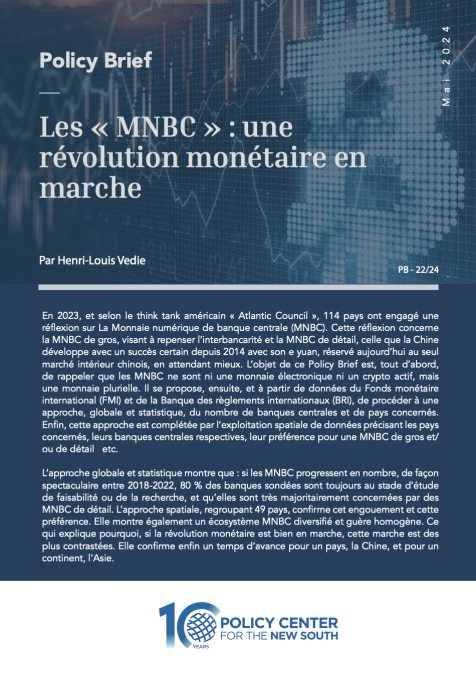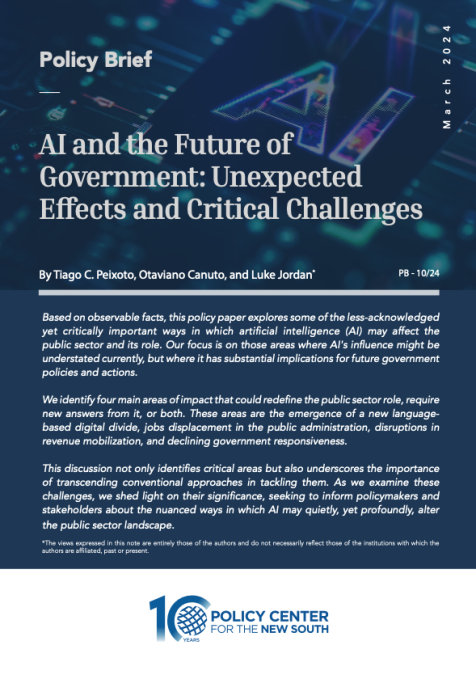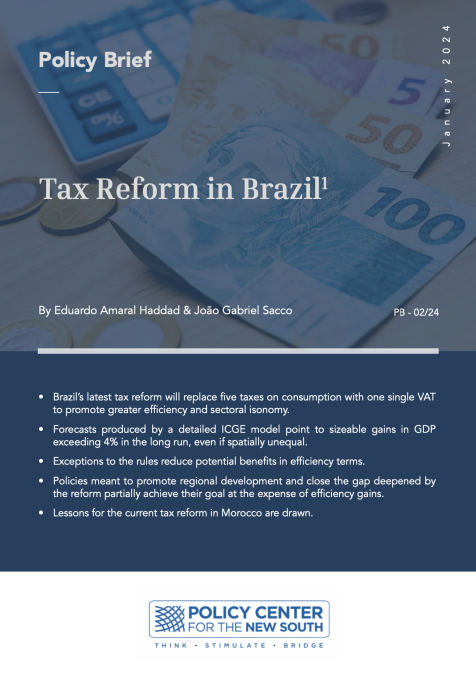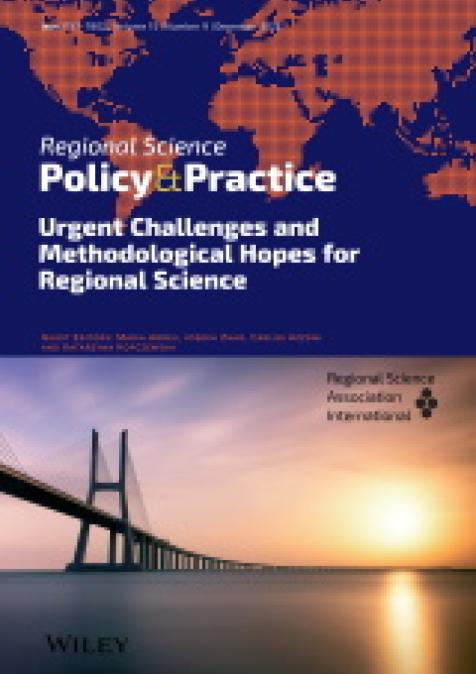Regards croisés sur la mise en œuvre du Nouveau Modèle de Développement - Session II
Cycle de Conférences : Regards croisés sur la mise en œuvre du Nouveau Modèle de Développement - Session II : Gestion macroéconomique et réformes sectorielles La deuxième session du cycle de conférences qu’organise le Policy Center for the New South sur la mise en œuvre du Nouveau Modèle de Développement (NMD) portera sur la gestion macroéconomique et les réformes sectorielles. Dans son diagnostic sur les conditions macro-économiques de la croissance, le Rapport sur le NMD a relevé que la stabilité macro-économique sur la dernière décennie n’a pas suffisamment porté la dynamique de développement. En témoignent le rythme lent de la croissance et la faible création d’emplois. Cette dynamique atone n’est pas sans lien avec la nature même des politiques macro-économiques jusque-là poursuivies. Considérées trop restrictives, soumises à des normes rigides, elles auraient privé le pays de l’exploitation des marges de manœuvre. Le projet du NMD avance une série de propositions pour infléchir les politiques budgétaires et monétaires et orienter la politique de change en vue de déclencher un cercle vertueux de développement. Ces propositions suscitent un débat sur la nature des politiques macro-économiques susceptibles d’élargir les marges de manœuvres, tout en garantissant la stabilité des comptes internes et externes et consolider la confiance des acteurs économiques. Deux enjeux de taille traversent la mise en œuvre de ces propositions. D’un côté le financement du modèle qui reste assujetti aux impératifs de l’engagement de la réforme fiscale et de la rationalisation de la politique actionnariale de l’Etat pour en faire un vecteur de création de valeur économique et sociale. De l’autre côté, l’accélération des dynamiques sectorielles pour lesquelles le Maroc dispose d’avantages comparatifs, dans le cadre de visions stratégiques à moyen et long termes pour contribuer à la consolidation de la stabilité macroéconomique et soutenir la croissance















